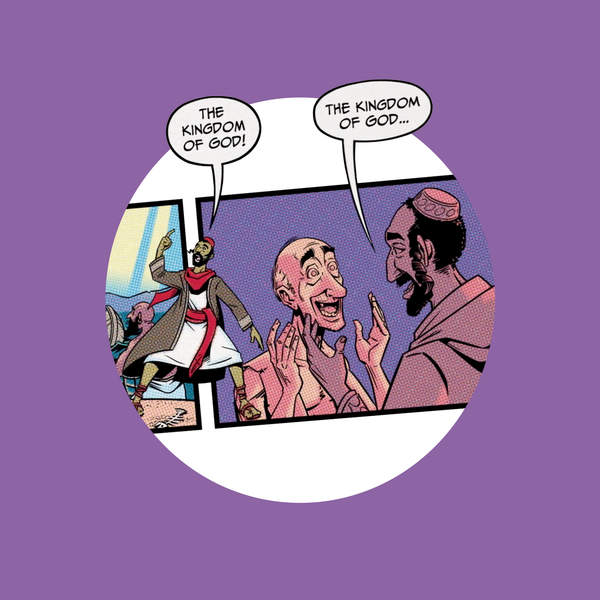
The Quest for Wisdom
Welcome to our new series on how to read the wisdom books in biblical literature!
Episode Chapters
Show Notes
In part one (0:00-15:20), Tim goes over what books are considered wisdom literature: Proverbs, Job, Ecclesiastes, and Song of Songs. Tim says there are different ways to classify the books in the Bible, but the books are primarily grouped into two categories. Wisdom of King Solomon -Proverbs -Ecclesiastes -Song of Songs The themes of wisdom, the "good life," and the fear of the Lord -Proverbs -Ecclesiastes -Job In part two (15:20-31:50), Tim clarifies exactly what wisdom literature is. In short: the entire Hebrew Bible. Tim uses Psalm 119:98-99 and 2 Timothy 3:15 to illustrate this point. Psalm 119:98-99: "Your instructions make me wiser than my enemies, For they are ever mine. I have more insight than all my teachers, For Your testimonies are my meditation." 2 Timothy 3:15: “From childhood you have known the sacred writings which are able to give you wisdom that leads to salvation through faith which is in Christ Jesus.” Tim points out that the entire Bible can be used to gain wisdom. Jon says that there are many different lenses to view the Bible through. Seeing it as a book of wisdom is perhaps a very universal one. The guys discuss how messy life is, just like the book of Genesis is messy. Humans in their desire to live are constantly faced with difficult choices. Tim shares a quote from Rolan Murphy: “Within the Hebrew Bible, the wisdom literature is exciting, because it deals directly with life. The sages of Israel were concerned with the present, how to cope with the challenges provoked by one’s immediate experience… The choice between life and death which Moses dramatically places before Israel in Deuteronomy 30:15-30 is re-echoed in the sages emphasis on wisdom that leads to life. The life-death situation is expressed in the image of the “tree of life.” Proverbs 3:18: “Wisdom is a tree of life to those who grasp her; how fortunate are those who embrace her.” This image is well-known from its appearance in Genesis: the first dwellers in the garden were kept from that tree lest they live forever (Genesis 2:9, 3:22-24). In a vivid turn of metaphor, wisdom in Proverbs has become the tree of life and is personified as a woman: “Long life is in her right hand, in her left, wealth and honor. She boasts that the one who finds find life (Prov 8:35) and the one who fails is ultimately in love with death (Prov 8:36)... One must hear wisdom obediently, but one must also pray for the gift that she is…. Embracing the gift of wisdom is precarious, however, because, according to the sages, we are easily deceived: “There is more hope for a fool, than for those who are wise in their own eyes” (Prov 26:12)” -- Roland Murphy, The Tree of Life: An Exploration of Biblical Wisdom Literature, pp. Ix-x. In part three (31:50-40:20), Tim dives into Genesis 1-3 and discusses the human quest for wisdom. Tim notes that you can trace the thread of God discerning what is “good and bad” in the creation narrative: God is the provider with all knowledge of “good and bad” (tov and ra in Hebrew). God the creator provides all that is “good” (Heb. tov). Seven times in Genesis 1 "God saw that it was tov.” God is the first one to identify something as “not good:” a lonely human in the garden. God sees the problem and asks how humanity can “be fruitful and multiply and fill the land and rule the creatures” alone, and sees the need for human companionship. In part four (40:20-end), the guys continue the conversation. What does God do? He "splits the adam" and creates man and woman. Genesis 2:21-25: "So Yahweh God caused a deep sleep to fall upon the human, and he slept; then He took one of his sides and closed the flesh at that place. And the Yahweh God built the side which He had taken from the human into a woman, and brought her to the man. The human said, 'This is now bone of my bones, And flesh of my flesh; She shall be called Woman [issah] Because she was taken out of [ish].' For this reason, a ish shall leave his father and his mother, and be joined to his isshah; and they shall become one flesh. And the two of them were naked, the adam and his wife and were not ashamed." Tim notes that God provides humans with what they cannot give themselves: blessing, fruitfulness, and dominion over the land (Gen 1:26-28). God divides the human in half (the word means "side" in Hebrew) and makes two humans who are unique and yet designed to become one. This relationship of man and woman becoming one, with no shame, no powerplays, no oppression, to know and be known in pure naked vulnerability before God and before one another, nothing hidden, everything revealed and loved, this is Eden. And Eden is where humans become kings and queens of creation.
Scripture References
Referenced Resources
- Roland Murphy, The Tree of Life: An Exploration of Biblical Wisdom Literature, pp. Ix-x.
- Derick Kidner, The Wisdom of Proverbs, Job & Ecclesiastes
- William P. Brown, Wisdom's Wonder: Character, Creation, and Crisis in the Bible's Wisdom Literature
Interested in learning more? Check out Tim's library for a list of recommended books and other resources.
Get the BibleProject app for access to our entire library of resources in one place.